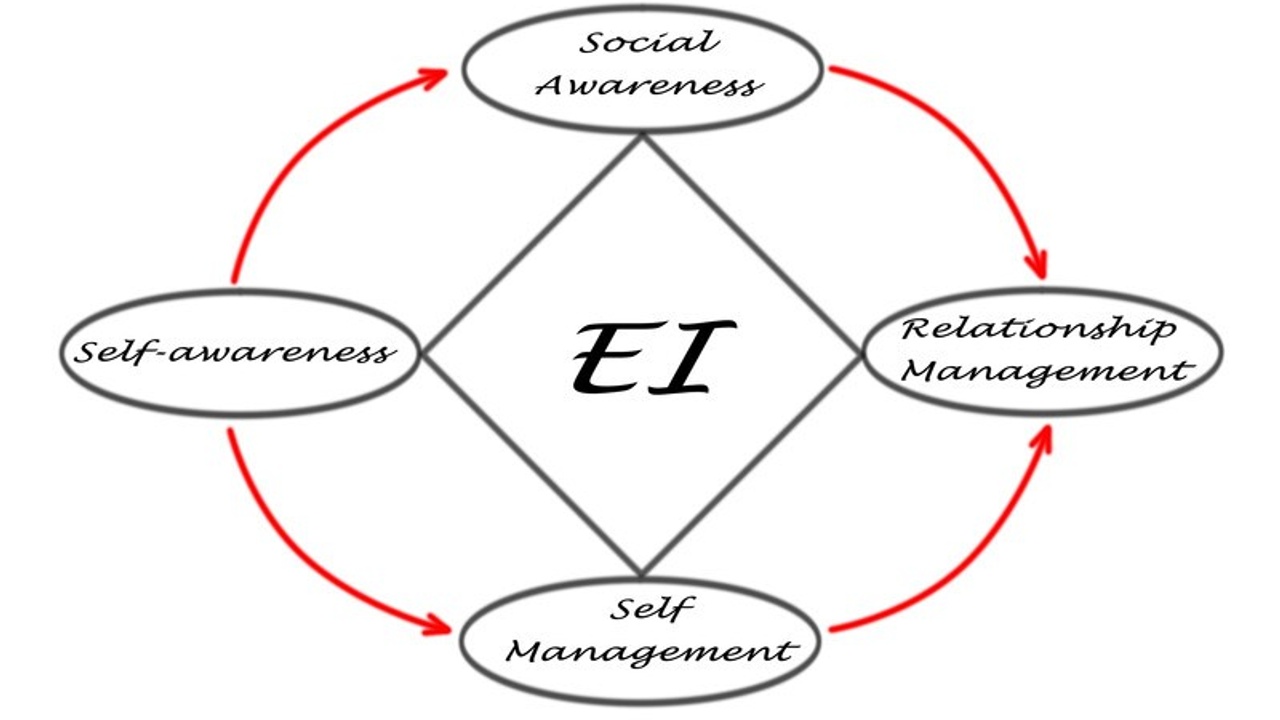
Emotional Awareness: Something to Think About
Emotional Awareness: Something to Think About
By Ronnie Cunningham, EIQ2-EICenter April 2, 2022
Many people these days are all-too quick to ignore their emotional wellness, even if they are strong proponents of physical health. COVID-19 has knocked everyone out of their comfort zones. Situational awareness of the individual and collective impact of the past ten years may not be known for decades to come.
It must be realized that emotional and mental health, however, can influence your overall health and wellness. The greater the awareness of the relationship of emotional and mental health the better one functions in all areas of life. But what is emotional wellness?
Emotional Awareness
Emotional Wellness refers to the ability to respond to stress. It is closely linked to mental health, which has more to do with our cognitive abilities - the ways in which we actually solve problems, our critical thinking skills, our ability to respond appropriately to adverse or threatening situations, and our emotional health can also impact our physical health, which are all associated with the proper functioning of our living bodies, mind, heart and spirit.
If all of these sound similar, it's because they are. Emotional wellness, physical wellness and mental health are less than half of the "dimensions of wellness" that are currently recognized by healthcare professionals. All of these dimensions interact with one another and contribute to your overall wellness to a much greater degree than is realized by most.
Improving Emotional Wellness
Now that we know what emotional wellness is, how does one improve it?
There's a popular misconception that the way to improve your emotional health is to avoid all stress. This misconception comes from the fact that emotional wellness refers to how you deal with stress. Actually, it goes much deeper.
Because most of us are more comfortable talking about physical health than emotional health, let's use a little analogy. Suppose that stress is a pathogen – it's everywhere, and it can make you sick. Suppose that emotional wellness is your immune system – it protects your body from stress so that you can live a healthy life. Too often we mask and suppress stress, and sometimes resort to some form of self-medication seeking escape from various stressors.
Just like you don't improve your immune system by creating a world free of germs, you can't improve your emotional wellness by trying to eliminate all stress. Just like we can make our lives safer by cleaning our homes and limiting our exposure to people who are sick, we can safeguard our emotional wellness by reducing unnecessary stress in our lives and trying to avoid people who make our lives more stressful, but that doesn't strengthen your emotional health. To strengthen your immune system, you need to combat pathogens, and to strengthen your emotional health you need to confront stressful situations.
Emotional Wellness And Emotional Awareness
The key to surviving stressful situations is as much emotional wellness as it is emotional awareness. Awareness, being the operative word. If you are not aware, you might lack the capacity to manage your emotions.
To go back to the immune system analogy, you are able to combat a sickness more quickly and efficiently – or even get sick less often – if you regularly check in with your body and know how you feel when you are healthy as opposed to when you are sick. Emotional awareness is this ability to check in with your feelings and recognize when something isn't right – whether you are mad or sad, happy or scared, and why.
This allows you to better address these issues in the moment, as opposed to most people's method of pushing their feelings to the back of their minds until the stressful situation has passed, and then dealing with them once it is already too late.
Emotional awareness is not only being aware of your own emotions, however, but is also being able to recognize and understand the emotions of those around you. Just like addressing your own feelings in the moment can keep you from over-reacting, addressing the feelings of others can help to keep them calm as well.
If you want to use the tools of emotional awareness to keep other people calm for their own sake, that's wonderful. For the rest of us, however, it is worth pointing out that if we are able to keep other people calm, it is more likely that we will be able to stay calm.
Emotional awareness is an aspect of emotional intelligence, which has four basic components (each component has several sub categories), self-awareness, self-management, empathy/social awareness and relationship management.

